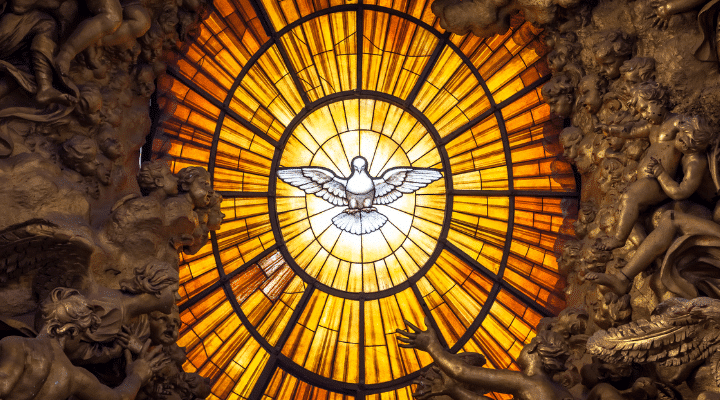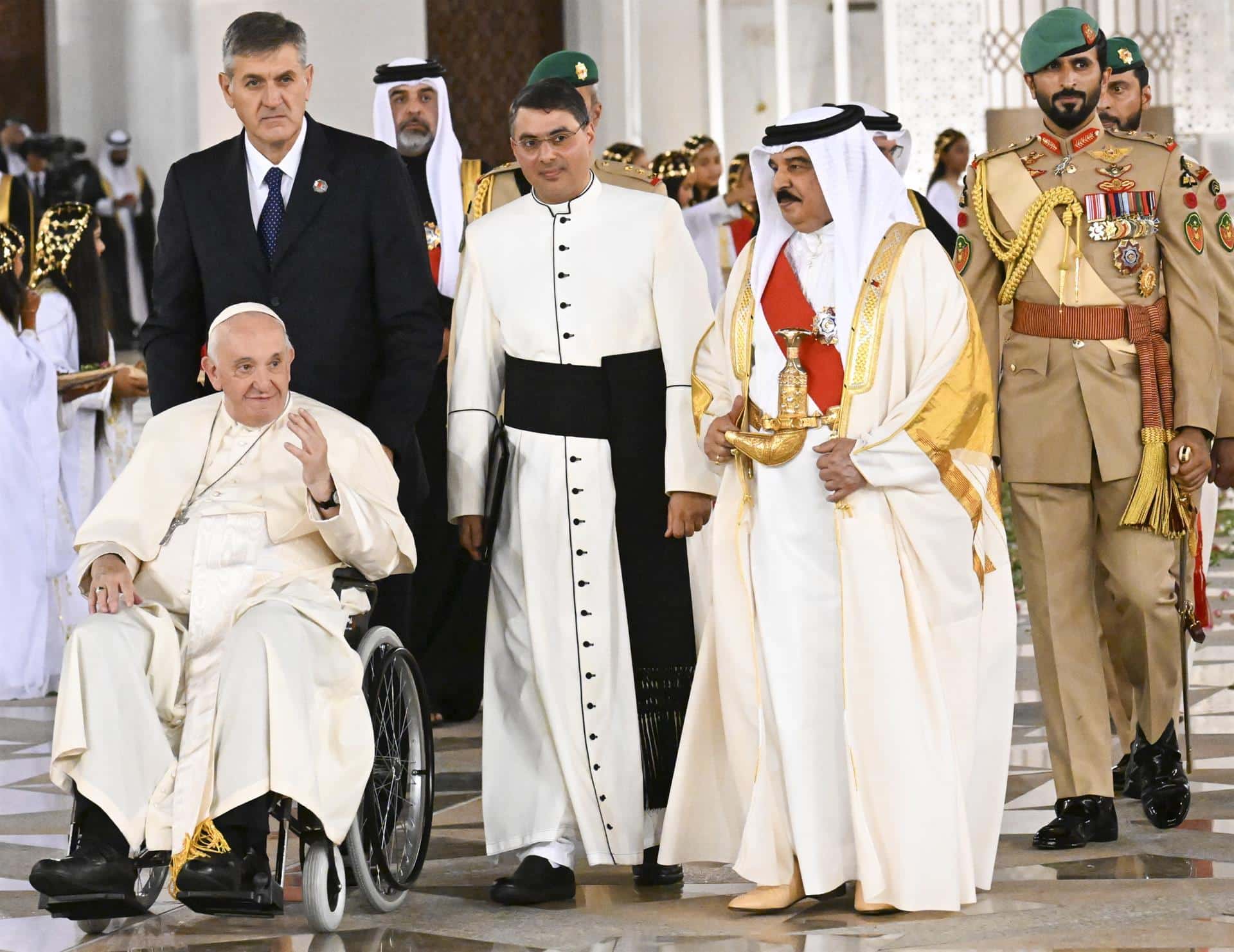
In the introduction to your speechhas told them that "it is beautiful to belong to a Church formed by the history of diverse faces, which find harmony in the one face of Jesus.". Taking foot of the geography and culture of the country, has spoken to them about the water that irrigates and makes fruitful so many desert areas. A beautiful image of Christian life as the fruit of faith and the Holy Spirit:
"Our humanity emerges to the surface, emaciated by many frailties, fears, challenges to be faced, personal and social evils of various kinds; but in the depths of our soul, deep inside, in the depths of our heart, flows serenely and silently the sweet water of the Spirit, which waters our deserts, reinvigorates what threatens to dry up, washes away what degrades us, quenches our thirst for happiness.
And it always renews life. This is the living water of which Jesus speaks, this is the source of new life that he promises us: the gift of the Holy Spirit, the tender, loving and revitalizing presence of God in us."
Pope Francis.
In a second moment, the Pope stops at a scene from the Gospel according to St. John. Jesus is in the temple in Jerusalem. The feast of Tabernacles is celebrated, in which the people bless God, thanking him for the gift of the land and the crops and remembering the Covenant. The most important rite of that feast was when the high priest took water from the pool of Siloam and poured it outside the walls of the city, in the midst of the jubilant songs of the people, to express that from Jerusalem would flow a great blessing for all peoples (cfr Ps 87, 7 and especially Ez 47, 1-12).
In this context Jesus, standing up, cries out: "Whoever thirsts, let him come to me and live, and out of his belly shall flow rivers of living water." (Jn 7:37-38). The evangelist says that he was referring to the Holy Spirit that the Christians would receive in Pentecost. And Francisco observes: "Jesus dies on the cross. At that moment, it is no longer from the temple of stones, but from the open side of Christ that the water of new life will flow, the life-giving water of the Holy Spirit, destined to regenerate all humanity, freeing it from sin and death".

Pope Francis' trip to the Muslim kingdom of Bahrain. Source VaticansNews.
From there, the Pope points out three great gifts that come with the grace of the Holy Spirit, and asks us to welcome and live: joy, unity and 'prophecy'.
First of all, the Holy Spirit is a source of joy. With it comes the certainty of never being alone, because he accompanies us, consoles us and sustains us in difficulties; he encourages us to achieve our greatest desires and opens us to wonder at the beauty of life. It is not a question," observes Peter's successor, "of a momentary emotion. It is even less about that kind of consumerist and individualistic joy present in some of today's cultural experiences.
On the contrary, the joy that comes from the Holy Spirit comes from knowing that, when we are united to God, even in the midst of our fatigues and 'dark nights', we can face everything, even pain, mourning and death.
And the best way to preserve and multiply that joy," says Francis, "is to give it. From the EucharistWe can and must spread this joy, especially among young people, families and vocations, with enthusiasm and creativity.
Secondly, the Holy Spirit is the source of unity because it makes us children of God the Father (cf. Rom 8:15-16) and therefore brothers and sisters to one another. For this reason, selfishness, divisions and murmuring among us make no sense. The Holy Spirit - the Pope points out - inaugurates the one language of love, breaks down the barriers of mistrust and hatred, and creates spaces of welcome and dialogue.
It frees us from fear and gives us the courage to go out to meet others with the disarming power of mercy. The Spirit is capable of forging unity, not in uniformity but in harmony.amidst a great diversity of people, races and cultures.
And, Francisco stresses, "this is the strength of the Christian community, the first witness that we can give to the world (...) Let us live fraternity among ourselves (...), valuing the charisms of all"..

Finally, the Holy Spirit is the source of prophecy. In the history of salvation we find many prophets whom God calls, consecrates and sends as witnesses and interpreters of what He wants to say to the people. Often the words of the prophets are penetrating. Thus, Francis points out, they They "call by name the evil projects that nestle in people's hearts, call into crisis the false human and religious securities, and invite to conversion".
Well, all Christians have this prophetic vocation. Since the baptismThe Holy Spirit has made us prophets. "And as such we cannot pretend that we do not see the works of evil, stay in a quiet life so as not to get our hands dirty."
On the contrary -he adds- every Christian must sooner or later become involved in the problems of others, bear witness, bring the light of the Gospel message, to practice the beatitudes in everyday situations, which lead us to seek love, justice and peace, and to reject all forms of selfishness, violence and degradation.
And he gives the example of concern for prisoners and their needs. "For in the treatment of the least (cf. Mt 25:40) is found the measure of the dignity and hope of a society.".
In short, and this is Francis' message, Christians are called - also in a time when conflicts abound - to bring joy, to promote unity (beginning within the Church) and to get involved with things that are not going well in society. For all this we have the light and strength of grace that comes from the Holy Spirit.
As a fruit of Christ's self-giving, the Spirit makes us children of God and brothers and sisters among ourselves so that we may spread the message of the Gospel throughout the world, which is good news for all, while at the same time inviting us to work for the good of all.
Mr. Ramiro Pellitero IglesiasProfessor of Pastoral Theology at the Faculty of Theology of the University of Navarra.
Published in Church and new evangelization.